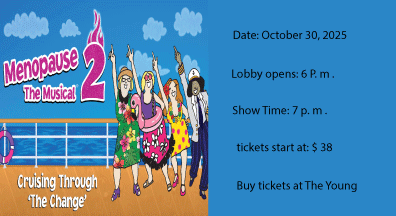Goodbye D2L, hello Canvas
The timeline for the Canvas integration into the UW System involves training and implemention will take place in Spring of 2018. Full course will take place from Summer 2018 to Fall 2019.
November 1, 2017
Canvas will replace Desire2Learn (D2L) at University of Wisconsin – Whitewater, whose contract ends with the UW System in July of 2018. Canvas will also replace Moodle, which is used by other departments in the UW System.
As of Oct. 13, Canvas, a product of Instructure, was contracted to be the Digital Learning Environment (DLE) for all UW schools.
Since the transition period from D2L to Canvas takes place over multiple semesters, it is likely that some students may have to take courses on D2L while enrolled in others on Canvas.
Sophomore Alyssa Pietruszka fears how the transition will affect incoming freshman. “I’ve gotten used to D2L but was confused by it before. I definitely feel for freshman trying to learn not only one system, but two,” said Pietruszka.
Canvas works a little differently than D2L. Canvas is hosted using cloud technology, meaning repairs, bug fixes and maintenance will be done externally by Instructure. The UW System pays an annual fee for the service, rather than a licensing fee like D2L.
The University of Wisconsin system used D2L as a Learning Management System (LMS) since the summer of 2003, but is now shifting to a DLE formula.
This is the result of a multi-year plan researching and testing different platforms for a new DLE, instead of a LMS universal in all University of Wisconsin schools.
The UW System conducted multiple examinations of the current learning technology landscape in the past five years – the main two being the UW System Roadmap Project in 2014 and the Learning Environment Needs Analysis (LENA) report in 2015.
This is to “…understand the future learning technology landscape, uncover the needs and requirements for (as well as identify gaps in) academic technologies,” according to the Digital Learning Environment Transformation Project page on wisconsin.edu.
The final report produced from LENA found that three groups: administrators, faculty and students, “…are not completely satisfied with D2L, although the administrative group had the most favorable opinion of the platform.”
Other findings in the LENA report show financial concerns were a barrier to continue with D2L, “A relevant motivation for staying with D2L was based in fear about the costs to campuses in particular, including, but not limited to, the staffing resources that would be needed to move and redesign entire online programs and content for all of the courses and train faculty and students to use the technology.”
The UW System Board of Regents submitted a Request For Proposal (RFP) in 2016 after the LENA report, which tested proposed platforms and applications for learning in a ‘sandbox’ like manner. The ultimate goal was to find a new learning management system to implement into UW courses and classes.
The RFP consisted of fifteen core subject matters across eight variations of learning and teaching scenarios. Three suppliers provided products for the study: D2L, Blackboard and Canvas. Ten evaluators assessed the products and their implementation, awarding Canvas with the highest score.
Canvas was tested twice prior in the UW System in pilots before the RFP, however, it was not tested as replacements for a (LMS). The first pilot was in 2013 in UW Madison’s School of Business.
The first study found that, “Canvas seems to be preferred among individuals working 40 hours a week or more.”
Although the results were generally positive, the study stated, “we do not observe any extraordinary desire to embrace the product.”
The second test pilot conducted in 2015 also compared Canvas and D2L for their usefulness of integrated tools. The pilot was done through nine professors, four of which came from UW-Whitewater.
The second pilot’s’ results showed more favorability to Canvas over D2L, “there was an overall positive response to Canvas over D2L and the majority of respondents mentioned that Canvas was more intuitive and easier to setup and use than D2L.”
One professor in the study noted that, “respondents unanimously agreed that grading in Canvas was easier and faster than in D2L for a number of reasons.”
Currently however, instructors have been notified not to comment on the transition, instead being instructed to direct all media inquiries to the Digital Learning Environment Transformation Project webpage.
The webpage highlights features of Canvas including, “a simple and intuitive interface for ease of use,” as well as, “and a collaborative “peer to peer” environment for students.”
The set plan for the integration is for course designs to be finalized by Jan. 2018 so some of the courses can begin migrating by Spring of 2018.
Plans include some courses to be available on Canvas in Fall of 2018, with full implementation of Canvas taking place in between the Fall of 2019 and Spring of 2020.













